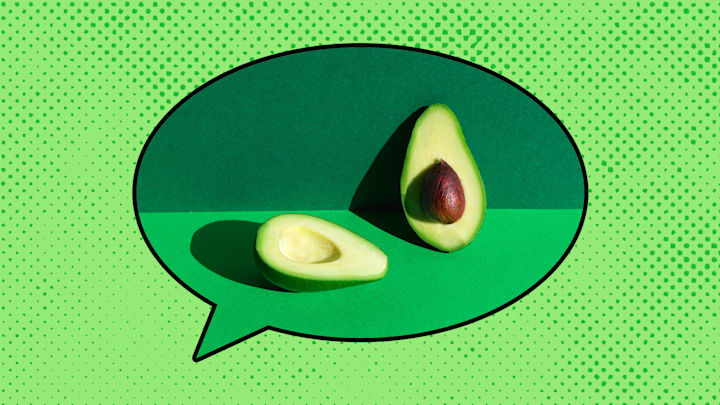You’re probably well aware that tepee, totem, and toboggan are all Native American names for familiar objects, but what about hickory, jerky, and tobacco? Native American languages gave us scores of words for things we frequently use—not to mention the many states, rivers, and towns that evolved from Native American names. Here are 11 words commonly used in English that were coined by Indigenous groups across the Americas.
1. Opossum

The Native American name of North America’s resident marsupial comes from the Virginia Algonquian word opassum (alternately spelled aposoum), which means “white dog” or “white beast” in the Powhatan language. (Americans tend to use opossum and possum interchangeably, but the latter also refers to a different type of marsupial native to Australia.) Skunk, coyote, raccoon, moose, woodchuck, and caribou are some of the other animals that owe their names to Native American tribes.
2. Squash
When English settlers first arrived in North America, they used squash as a verb (meaning “to crush something”) and, more arcanely, to refer to an unripe pea pod. However, they were unfamiliar with the fruit we now know as squash, according to Merriam-Webster. The Narragansett tribe from present-day New England called it “askútasquash,” which was eventually shortened to squash in English.
3. Chocolate

This delicious treat comes to us from nature, but we can thank Indigenous Mesoamericans for this Native American name. The word chocolate comes from Nahuatl, a language spoken by the Aztecs (dialects the language are widely spoken in Mexico today). The Aztecs would make a drink from ground cacao seeds called chikolotl.
4. Hammock
This word comes from hamaca, whose origins are slightly unclear: It could be from the now-extinct Taíno language (once spoken by Indigenous people in the Caribbean), or from a related Arawakan language. It originally referred to a “stretch of cloth” and entered the English language via the Spanish (who still call it a hamaca).
5. Barbecue

This also comes from a Taíno word—barbacòa—and entered English via Spanish explorers who must have thought the cooking method was pretty nifty. It originally meant “structure of sticks set upon posts” and was first recorded in print as barbecoa in Spanish in 1526.
6. Avocado
Sorry, avocado trivia lovers, but the story that this word originally meant “testicle” in Nahuatl isn’t quite right. According to Nahuatl scholar Magnus Pharao Hansen, the Nahuatl name for the fruit, ahuacatl, was also slang for “testicle,” but only ever slang. The word ahuacatl chiefly described the fruit. It entered Spanish in the late 1600s as aguacate, and was eventually Anglicized as avocado.
7. Guacamole

In a similar vein, guacamole stems from two Nahuatl words: ahuacatl (“avocado”) and molli (“sauce”). Mix them together and they make ahuacamolli. Molli, as fans of chicken mole enchiladas will know, was later spelled mole in Mexican Spanish. Tomato (tomatl), chili (chilli), and chipotle (chilli + poctli, meaning “something smoked”) are a few other food words that come to us from Nahuatl.
8 and 9. Canoe and Kayak
Canoe and kayak are both Native American words, but they were coined by different tribes. Kayak can be traced back to the Inuit of present-day Greenland, who call the long boat “qajaq.” The word is also present throughout the Inuit-Yupik-Unangan languages. Canoe, on the other hand, comes from the Arawakan word canaoua. According to the Online Etymology Dictionary, early spellings of canoe were cano, canow, and the Spanish canoa, “before spelling settled down” in the 18th century.
10. Hurricane

The Maya believed in a “god of the storm,” and they called it “Hunraken.” This same word was picked up throughout Central America and the Caribbean to refer to an evil deity. Spanish explorers in the Caribbean changed the spelling to huracán and used it to describe the weather phenomenon, and it was finally introduced into English by the 16th century.
11. Poncho
Indigenous peoples in central Chile who speak Araucanian languages dubbed their shawl-like “woolen fabric” a pontho. They were often worn by huasos, or cowboys, who lived in central and southern Chile. Nowadays, ponchos are commonplace throughout Latin America.
A version of this story ran in 2018; it has been updated for 2023.
